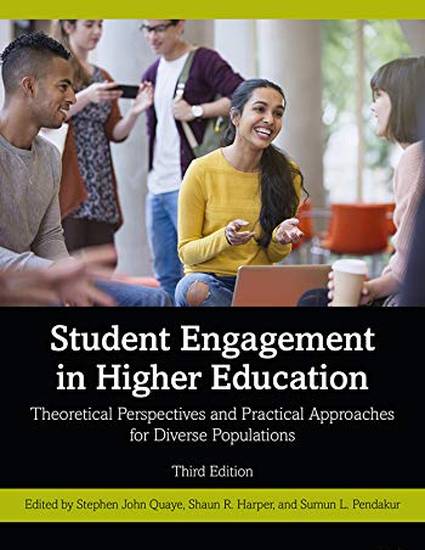
Contribution to Book
Engaging Student Activists
Student Engagement in Higher Education
(2019)
Abstract
n this chapter, we contemplate higher education stakeholders’ understanding of con- temporary student activism and students as agents of social and institutional change. One notable difference from other student populations discussed in this book is the extent to which student activists are not necessarily defined by a shared social identity. Rather, in addition to who student activists are, which spans the entire spectrum of overlapping and intersecting identities, we posit student activists are primarily defined by their specific (and sometimes disruptive) political actions (e.g., campus canvassing, building or office occupation, and other forms of protest and demonstration), differentiating them from non-activist students. Such a distinction is an important one, in part, because engaging student activists contains layers of complication in which accounting for high levels of heterogeneity and interactional diversity are necessary. We revisit this action-oriented framing further in later sections of this chapter.
Keywords
- Student Activism,
- Higher Education,
- Student Engagement,
- Student Affairs
Disciplines
Publication Date
2019
Editor
Stephen J. Quaye, Shaun Harper, and Sumun L. Pendakur
Publisher
Routledge
Citation Information
Davis III, C. H. F., Stokes, S., & Morgan, D. Engaging student activists (2019). In S. J. Quaye, S. R. Harper, and S. Pendakur (Eds.), Student Engagement in Higher Education (3rd ed.) (pp.143-161). New York: Routledge.
